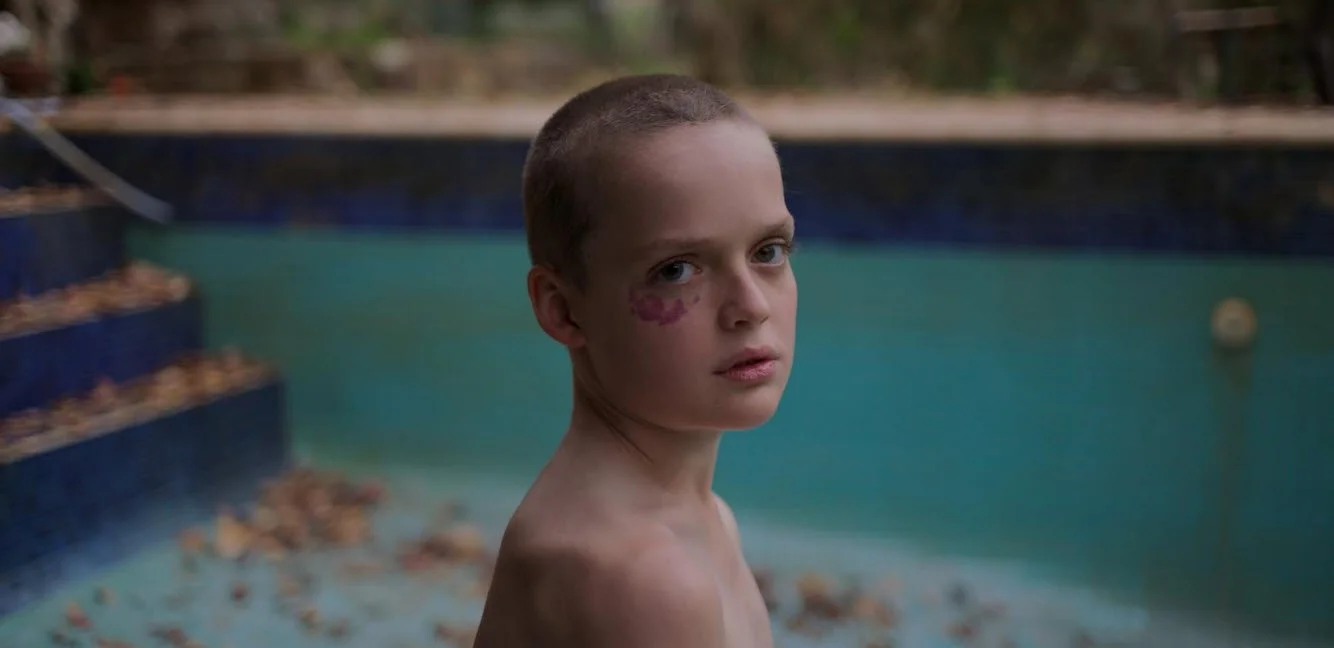Crimes of the Future (2022) | A Cronenberg Crime
David Cronenberg is one of the most notorious horror film directors of the past fifty years. He’s a director who is perhaps most often associated with the body-horror sub-genre due to his contributions that have often featured some creative and disgusting practical effects. His most celebrated work was the remake of the classic, The Fly. However, many of his other known films like Videodrome, Naked Lunch, and Scanners had their own share of the Cronenberg touch when it comes to horror. I’ve seen plenty of his movies that have not really been my cup of tea, but I still respect his commitment to his creative visions, far-fetched as they might get. He’s always been someone who is willing to get abstract with his stories, science fiction in particular, and to push the envelope as far as he can in psychological and sexual ways.
Well, now I have a new example of Cronenberg getting a little too weird for me to follow completely. After taking a break from directing, he put out Crimes of the Future in 2022. It is quickly apparent how much of a Cronenberg movie it is, especially with all the futuristic technology that is very organic in its presentation, in addition to the overt sexual tones. It got real weird, real fast, and I had some trouble following along to the point that I actually paused it and watched a whole other movie before coming back and finishing it.
Pros
Cronenberg’s weird designs for futuristic technology and how they blend with organic material are always fascinating
Practical effects look good despite the obviously low-budget
Decent acting from particular members of the cast
Cons
Plot takes a while to get going
Acting and dialogue rather weak, overall
Suspension of disbelief is required
Plot & Thoughts
Crimes of the Future opens with an intense and dark scene in which a mother smothers her child with a pillow after witnessing him eat a plastic trash can. The story then shifts to two “artists,” Saul Tenser (Viggo Mortensen) and Caprice (Lea Seydoux). Saul has a strange medical condition similar to cancer in which his body is constantly growing new organs and tumors. It seems to cause him a great deal of pain, which is something many people of the future don’t seem to feel anymore, for some reason. While his condition would likely kill him if allowed to continue on its own, Caprice, who used to be a trauma surgeon, uses her special futuristic operating device to extract these organs and growths. The part where this gets weird is that she also is able to tattoo the organs before doing so and does these surgeries on him in public as performance art. Saul doesn’t seem to mind either and appears to be really enjoying it sexually. In this dystopian future, body mutilation is the new high art and form of sexual intercourse, so Saul and Caprice are practically celebrities as the Banksy and Warhol of their time.
Are you confused? Perplexed? I certainly was, but I was willing to go along with this warped vision of the future to see where it would lead. Eventually, the main plot of the movie, finally, comes along around the halfway mark and ties back into the opening scenes involving the child who liked to eat plastic. It’s at this point that Crimes of the Future goes from being a bizarre allegory towards high art and fetishization of body mutilation to a focus on human evolution and the need to physically change in order to survive in a bleak, post-climate-change future. Cronenberg likes to have some sort of quiet revolution in his movies, including some of the titles I mentioned at the top, and it’s no different here. I won’t get into the details since this all happens past the halfway point of the film, but essentially, the movie’s focus shifts substantially by that point.
I think there are some interesting ideas at play in Crimes of the Future, even if the themes it’s exploring in the process are not that unique or innovative. It’s a movie that had a decent amount of potential to tell an interesting story. However, I don’t think it really ever succeeds. Crimes of the Future is trying to do a lot, but it’s also very clearly a low-budget film. Cronenberg has done plenty of low-budget horror films with big ideas in the past, but this movie comes across as a classic example of a project that tries to do too much without a clear direction or means to accomplish everything.
The weird sexualization of body modification and mutilation is definitely provocative and shocking, but it doesn’t serve much of a purpose when the plot finally catches up with the movie. The morals of the world never entirely make sense, and the revolution that is hinted at happening did not evoke any sense of hope or interest in the world’s potential future. I didn’t get any real idea of an antagonist or opposing force in the form of a ruthless authoritarian government. So, having a revolutionary group of rebels trying to fight the power didn’t spur any interest in me because I didn’t understand what they were fighting or why. When characters were discussing big changes and the martyrdom of heroic icons, it didn’t mean anything, so I didn’t care what happened next.
In addition to the plot being somewhat aimless, the dialogue and acting were pretty hit-and-miss. The mother from the beginning is played by Lihi Kornowski who, despite only being a small character in the film, manages to stand out from the rest of the cast in her few scenes. However, the acting from both Lea Seydoux and Kristin Stewart is far less subtle or natural. Stewart, in particular, had some weird behavior and mannerisms that were excessive and distracting. Don’t get me wrong. I was entertained by her performance, but not in the way that was intended. Their performances weren’t helped by the dialogue that needed some fine-tuning. In a futuristic world that is so different, it’s practically alien, and there are many concepts the film wants to convey. What is actually said or described in Crimes of the Future is clunky and awkward at best.
TL;DR
Crimes of the Future has a lot of themes and subjects it wants to cover: the depths of human sexuality when integrated with body modification, how human evolution will progress from extreme environmental changes, the morality of modifying a human body for the sake of art, etc. However, it takes a long time for the main plot to get started, and the weird world of the dystopian future is never clear or realized in a way that makes it believable or remotely logical. Along with some weak performances and uninspired dialogue, Crimes of the Future falls short of achieving its many lofty goals. It’s worth watching only to feed your curiosity about the concepts at play, but I doubt you’ll be engaged or entertained.









